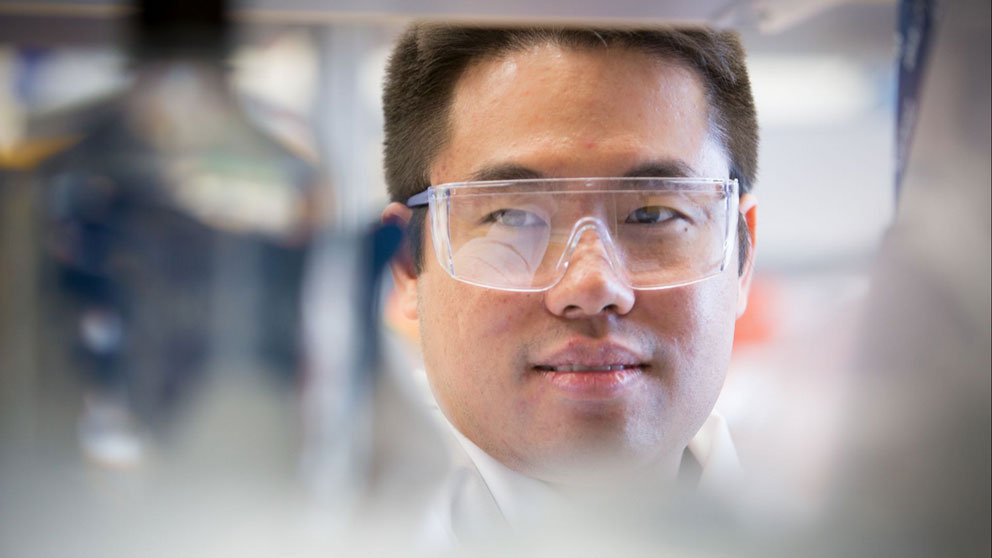
A grant from the National Human Genome Research Institute to Jackson Laboratory (JAX) Assistant Professor Albert Cheng, Ph.D., totaling $3,240,117 over five years, will fund the creation of a molecular “toolkit” to explore the effects of epigenetic modifications — chemical changes to DNA and histone proteins that affect how genes are expressed in normal and disease conditions.
According to Cheng, the toolkit will be available to biomedical researchers worldwide, with the goal of accelerating personalized and precision medicine.
Thanks to next-generation sequencing technologies, researchers can profile epigenetic modifications in many kinds of cell types. But these are essentially “snapshots” that fail to fully reveal the detailed and dynamic processes involved in turning genes on or off, processes that are fundamental to normal physiology and disease.
Cheng is developing a system to explore epigenetic changes that works more like a video than a snapshot: a video that can be rewound and precisely edited. “This toolkit,” Cheng says, “once developed, will transform the ways we study epigenetics by providing a fine and scalable technique to directly edit epigenetic states at defined targets, to investigate the underlying causes of gene regulatory changes observed in biological processes and diseases.”
At the heart of the toolkit is Casilio™, an “upgrade” of the well-known gene-editing platform known as CRISPR-Cas9. Invented by scientists led by Cheng and Haoyi Wang, Ph.D., Casilio™ can simultaneously execute distinct functions at multiple areas of the genome at the same time, expanding researchers’ ability to study gene function and chromosome structure. Cheng likens it to the operating systems (OS) on smart phones and computers, “new functionalities can be added as modules, like installing apps on our favorite electronic devices.”
As part of the project, Cheng will collaborate with stem cell and gene editing expert Bill Skarnes, Ph.D., to install Casilio™ in stem cells – cells that can be instructed to make any cells in the body – to study developmental processes that can provide novel insights for advancing regenerative medicine.
Application of Casilio™ is not limited to stem cell biology. Indeed, Cheng aims to make the tools available to all areas of research and will facilitate so by building ready-to-use cellular resources. “To truly benefit the field of functional genomics,” Cheng says, “we will share our methodology and reagents at every stage of platform development with the scientific community. More excitingly, programmability and precision of epigenetic editing enabled by Casilio™ may provide new means and tools for powering personalized and precision medicine.”
National Human Genome Research Institute: Modular Platform for Combinatorial Epigenome Manipulation, Grant number 1R01HG009900-01.